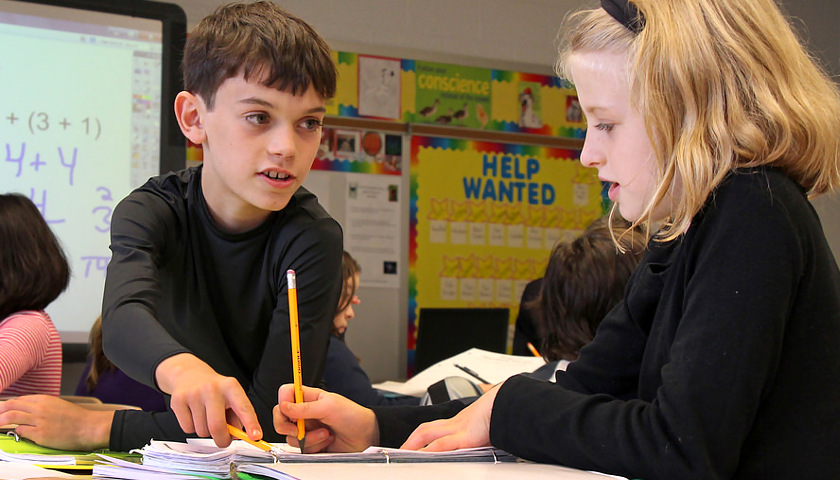Third-graders who struggle with reading may have to repeat the grade, thanks to a portion of a 2016 Michigan law that goes into effect next spring.
The law, signed into effect by then-Governor Rick Snyder in October 2016, mandates that third graders who are more than one grade level behind in reading and writing repeat the third grade, starting with students entering the third grade in the 2019-2020 school year.
Assessments will help identify at-risk students within the first 30 days of school. The teachers of students identified as a “reading concern” will give the students an Individualized Reading Improvement Plan, and the students will be tested several times throughout the year.
Students who may be ultimately held back are determined by the Michigan Student Test of Educational Progress.
Nearly 0.7 percent of third-graders — around 700 — were held back in the last academic year. Under the new terms, that number could jump to between 2,000 and 5,000 students, or two to five percent, according to researchers at Michigan State University.
The law could also affect some groups at a higher rate. Between seven and 11 percent of African-American third-graders could be held back, said the Associated Press.
Educators can apply an exemption for some students, including those with disabilities, who speak English as a second language, who were previously held back or those who have been at their current school for less than two years and were not given an individualized reading program in their old districts. Educators can also advance students if they deem it to be in their “best interests.”
“This isn’t a superintendent sitting in his office just making a random decision. This is based on input and based on what’s best for the child,” Chris Wigent, executive director of the Michigan Association of Superintendents and Administrators, told the AP.
Governor Gretchen Whitmer has said that she is against the law.
Here's a thought: instead of holding children back for not doing well in class, let's make sure they have the resources they need to be successful.
Check out my plan to provide students and frontline educators the resources they need to be successful: https://t.co/SYNLU4Vw0S pic.twitter.com/dJt7P70CvN
— Governor Gretchen Whitmer (@GovWhitmer) August 13, 2018
“Here’s a thought: instead of holding children back for not doing well in class, let’s make sure they have the resources they need to be successful,” she tweeted last month.
She also called it a “punitive measure” in her education plan.
Although the retention part of the law went into effect this year, the 2016 law has already increased state spending on literacy programs, implemented K-3 reading tests and teaching time for students who need additional help with reading.
– – –
Jordyn Pair is a reporter with Battleground State News and The Michigan Star. Follow her on Twitter at @JordynPair. Email her at [email protected].





